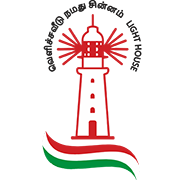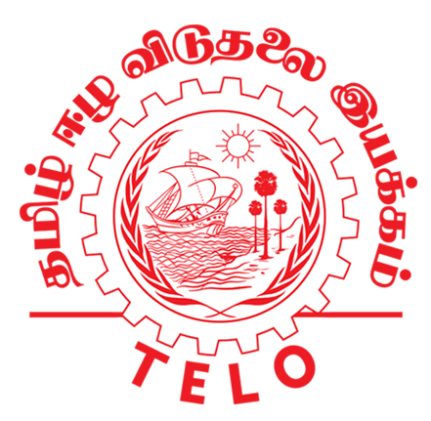Hi guys! How are you doing, exhorted United States Ambassador Julie Chung as she walked towards a group of MPs at the tea party hosted by President Ranil Wickremesinghe last Wednesday. It came at the end of a policy statement he delivered after the ceremonial opening of Parliament.
Turning to onetime minister, Patali Champika Ranawaka, she declared, “I see from the media that you are going to be a presidential candidate.” The newly formed United Republic Front (URF) leader, now preparing for a broad front to support his candidature, smiled. He appeared non-committal. Another parliamentarian quickly shot a question before the US envoy could move over towards another group. “JVP leader, Anura Kumara Dissanayake is in India. Are there any Indo-Pacific issues linked to the visit,” he asked. “No, no,” she hurriedly responded.
Ambassador Chung, who represents a nation that once was the first to put a man on the moon, also used the MPs as a sounding board. She asked whether anyone there had climbed Adam’s Peak or Sri Pada. Then she proudly boasted that she had walked to the top in just two and a half hours last month. From her schooldays, she swaggered, she has done a lot of hiking.
For the group of MPs, even before the US envoy walked in to say hello, the talking point had been the visit to India of a delegation from the Janatha Vimukthi Peramuna (JVP)-led National People’s Power (NPP). The news of the visit and meetings with key players in the Indian government had, without doubt, caused concerns to both those in the government and the opposition. They manifested themselves in different forms. Those in the government were made aware in Colombo of the visit as a matter of courtesy. Besides, Sri Lanka’s High Commissioner in New Delhi, Ms Kshenuka Seneviratne, received a hint during a meeting with National Security Advisor, Ajit Doval. That was days before the NPP delegation arrived in New Delhi.
Thushara Indunil, a parliamentarian from the main opposition, suggested that it was the outcome of a flawed survey which had predicted an overwhelming vote count for NPP leader Anura Kumara Dissanayake. There is some validity in his argument over a faulty survey. As he claimed, it was based on a sample of 500 people and carried out by an agency whose credentials are in question. However, to assume or argue that a country like India would be guided by such a trivial matter is not only ridiculous but also reflects how ill-informed those in the Samagi Jana Balawegaya (SJB) are. Understandably, touted as a potential winner at an election, either presidential or parliamentary, it is a weak-kneed SJB response.
A more hurting accusation against the JVP has been its onetime policy of being opposed to Indian expansionism. This week, National Freedom Front (NFF) leader Wimal Weerawansa was to highlight the issue. Of course, he was himself a member of the JVP and advocated anti-Indian sentiments as a firebrand then. I posed this question to Anura Kumara Dissanayake during an interview in December, last year. He replied, “We are a sovereign and independent country. Therefore, we have the acceptance and the right. That is the principle. But there is a difference between the principle and the reality. Whether we like it or not there is geopolitical competition. There is competition in trade, technology etc. In Sri Lanka, we are not part of that competition. We are not competitors of India, China, Russia, or Europe. They have the competition. Our neighbouur is in the geopolitical situation. That is the reality. Our country’s decisions favour or disfavour India. Therefore, in our foreign policy we cannot ignore India.”
With over eight months for the scheduled presidential elections, electoral surveys that are credible are yet to surface. Hence, one could safely assume that the international recognition or acknowledgement the NPP has received so far, is not based on surveys though it is possible such ones would have been carried out by them. They have already visited the United States and China. Yet, one does not require punditry at the highest levels to observe the changing political landscape for the JVP led NPP.
There are critical areas and the lack of checks and balances. That the NPP is emerging as a strong political force has sent shockwaves to different quarters. They are reminded of the aftermath of the protests two years ago and the attacks on the residences of government parliamentarians and their supporters. The pattern of attacks, it came to light, is the result of an organizational structure that was in place to deal with their rivals. Groups in the opposition feel there could be a repeat of such action. At least one opposition party has been fear-driven at the highest levels to engage in a new revival effort.
This notwithstanding, there are many developments that are worth evaluating. First is how the JVP is morphing itself as the National People’s Power by broad-basing the party structure to encompass different professions. That has included academics in universities in large numbers. A significant step in this regard is the formation of bodies representing retired personnel of the security forces including top officers on a district basis, a factor which was not existent before. They are known to be networking with those who are now serving. Another is a close study of the turnout of crowds for its public rallies. An example would be the one in Matara which had a record turnout. A counterargument to this is the claim that the JVP is known for mustering crowds, but they do not translate into votes at an election. The turnouts at May Day rallies are being cited as an example. However, there appears to be a distinct difference with the formation of the National People’s Power. The crowds do not represent only the youth as in May Day events. It has gone beyond. Contrary to popular belief, funds have not been a problem for the NPP.
Now to the India visit. Formally, the invitation came from the Indian Council for Foreign Cultural Relations (ICFCR), an Indian Government institution that functions under the Ministry of External Affairs in New Delhi. The official delegation on both sides were made up as follows: Anura Kumara Dissanayake, Member of Parliament of Sri Lanka and leader of the Janatha Vimukthi Peramuna (JVP) and NPP, Vijitha Herath, Member of Parliament, JVP, Dr Nihal Abeysinghe, General Secretary of the National People’s Power, Professor Anil Jayantha, Member of the Economic Council of the National People’s Power, Shri Eldos Mathew Punnoose, Counsellor, High Commission of India, Colombo, Abhay Kumar, Deputy Director, ICFCR, Mahinder Segal, Programme Director, ICCR, Ram Kumar, an officer from the Indian Ocean Region and Constantino Xavier, Academician.
The ICFCR’s focus is on connectivity programmes, through visitor programmes targeting official/technical-level government delegations visiting India for identified programmes; and provision of educational scholarships at undergraduate, graduate and post-graduate levels. It has come to light that Sri Lanka has underutilised the 200 scholarship slots allocated. The reasons outlined are that the students prefer to obtain degrees from western countries; at the same time top notch Indian universities find it difficult to absorb scholarship holders given the high demand within India. It was also felt that the availability which is announced by the Education Ministry through gazette notification did not provide adequate publicity.
Anura Kumara Dissanayake had an hour-long meeting with External Affairs Minister Subrahmanyam Jaishankar. Thereafter, he met National Security Advisor Ajit Doval and Foreign Secretary Vinay Kwatra. The JVP/NPP leader also met with officials of the Observer Research Foundation (ORF), a think tank affiliated to the Ministry of External Affairs. In the state of Gujarat, Dissanayake and members of his delegation visited an Amul milk complex in Ahmedabad. It is relevant to note that the JVP/NPP leader strongly criticized the Amul project in Sri Lanka. He later visited Tiruvananthapuram in the State of Kerala before returning to Colombo last night.
Speaking on the telephone to the Sunday Times from the southern Indian city of Tiruvananthapuram, Anura Kumara Dissanayake said, “My talks with External Affairs Minister, Shri Jaishankar was very useful and rewarding. We have changed. He acknowledged that; so, has India. We are not competitors, but India is. We are mindful of India’s concerns including its security. These factors were also discussed with National Security Advisor Ajit Doval.”
Asked how his talks went with those at Amul Dairy, Dissanayake declined details except to say we pitched our position strongly. However, other sources said that Dissanayake explained the NPP position that documents and details relating to the Sri Lanka government’s deal with Amul have remained a secret and have not been tabled in Parliament. He urged that the transactions should be transparent and that was why his party has been raising issues over the matter.
In a separate development, Anura Dissanayake, Secretary to the Prime Minister, will pay a four-day visit to New Delhi beginning February 12. He is to lead a delegation for talks on collaboration between the government and India’s National Centre of Good Governance.
Sri Lanka Podujana Peramuna (SLPP) Parliamentarian Namal Rajapaksa was also in India this week. On Friday, he visited the newly built controversial Ram Mandir (Ram Temple) in Ayodhya in the Indian state of Uttar Pradesh. A special pooja was held for him. Later, he also had a meeting with Maharashtra Chief Minister Eknath Shinde. Hindus believe that Ayodhya is the mythical birthplace of Rama, a principal deity of Hindiusm.
The NFF team’s visit to India came in a week when President Ranil Wickremesinghe last Wednesday ceremonially opened Parliament, which was prorogued at midnight on January 27. The 11-page address, surprisingly enough, did not make any reference to the presidential election which is constitutionally due this year. More so when the President had chosen to skip the address to the nation during the Independence Day celebrations on February 4. So much so, Samagi Jana Balavegaya’s Lakshman Kiriella, the Chief Opposition Whip, suggested at a news conference that the presidential elections could be put off at the eleventh hour. That, however, is not a likely prospect, for President Wickremesinghe is going ahead with plans.





